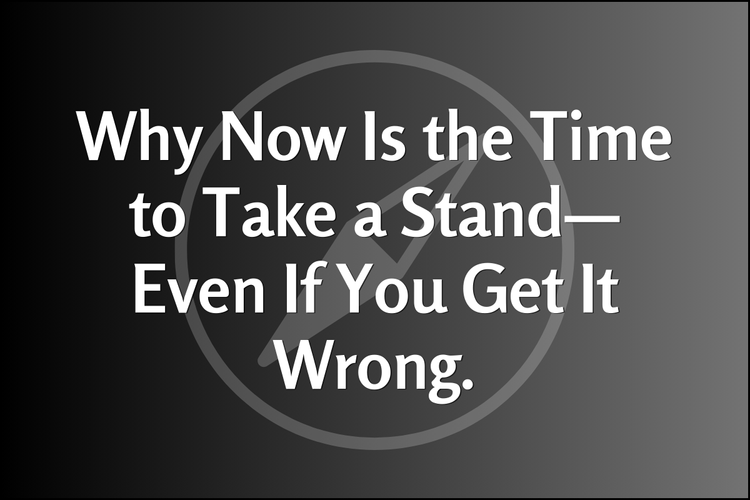Who Are You When No One Is Watching—And Why That Matters

Have you ever heard the term virtue signalling?
I’m sure you have. It’s everywhere on social media—people saying things to make themselves appear more ethical, morally superior, or better than someone else.
But here’s the real question:
What do they do, and how do they behave in private—when no one is watching?
The choices we make when no one is watching are the truest representation of our ethics and moral code.
Morals usually refer to an individual’s personal beliefs about right and wrong, influenced by factors like society, culture, and upbringing.
Ethics, on the other hand, are guidelines—a system of moral principles or values—established by communities, groups, politics, and religions outlining acceptable and unacceptable actions and behaviours.
Have you ever done something you knew was wrong but did it anyway—because you realized no one would ever find out?
And so, you did it. How did that make you feel?
- Maybe you felt good—because you got away with it.
- Perhaps ambivalent—you wish you hadn’t done it, but what’s done is done.
- Or potentially you felt guilty.
I’m not saying this from some moral high ground. I’ve made my share of bad choices in private—choices that weren’t aligned with what I knew was right. And yes, I’ve also participated in virtue signalling.
Sadly, I’ve also made moral choices that backfired because a group of people I was working with held a set of ethical principles based in groupthink that was in direct opposition to what I thought was “the right and moral thing to do.”
What matters is not pretending to be perfect.
Rather, it’s about being honest with ourselves when we fall short of our principles.
But here’s something crucial:
Owning our mistakes doesn’t always require a public confession.
I don’t need to broadcast my rights and wrongs to prove I stand for what I believe in. I just need to live it—to keep showing up in a way that aligns with my values and makes a difference. That’s what I deem to be personal responsibility and ethical leadership.
We all make mistakes, and we shouldn’t be afraid of that. Mistakes are how we learn, grow, and evolve. If we think we’re incapable of doing anything wrong, we’re deluding ourselves.
And that brings me to the nature of trust…
If you can’t trust yourself to do the right thing—to follow through on what you say you stand for—how can others trust you?
Sure, this could be small things: breaking promises, failing to follow through on commitments. That’s a matter of integrity.
Integrity means when you say you’ll do something, people know they can count on you.
But trust goes much deeper.
Trust means people believe that when you speak, it comes from a place of truth—your truth. They know your words are aligned with your values, your ethics, and your sense of right and wrong.
And trust isn’t built overnight. It’s built by showing up—consistently, day after day, in ways that prove your character.
And if you ever slip up? You own it. You acknowledge it. And if necessary, you make amends.
Because the choices we make in private?
They shape who we really are.
And if you don’t know what you stand for, you won’t have a leg to stand on.
Many change-makers want to lead with impact, but without a clear message and method, their influence is weak or non-existent.
If you can’t define what you stand for or articulate why it matters, how can you expect others to follow your lead?
So ask yourself:
- If you don’t prioritize how you FEEL, how will you sustain the energy to lead?
- If you’re unsure of what you KNOW, how will you stand firm in your convictions?
- If you don’t refine how you THINK, how will you make sound decisions?
- If you haven’t found your VOICE, how will anyone hear your message?
- If you don’t have a plan to achieve your DREAM, how will it become reality?
- And if you don’t discover the best way to LEAD, how will you inspire others?
Without these elements, leadership feels exhausting and unproductive. But when you master them, you gain clarity, confidence, and real influence.
If you’re ready to empower your leadership and make a greater impact, let’s talk. Reach out for a conversation about the challenges you’re facing and the difference you want to make.





Member discussion